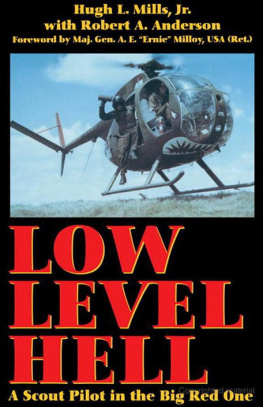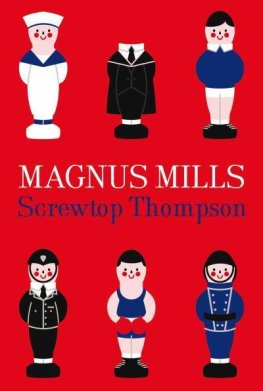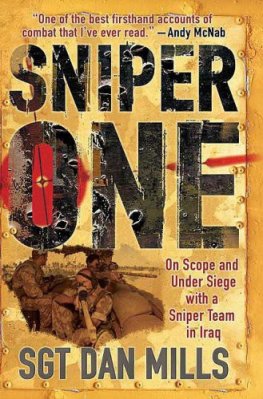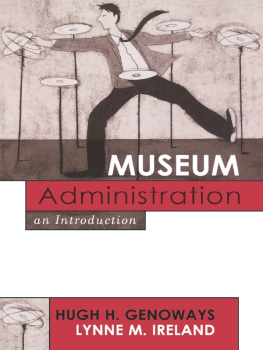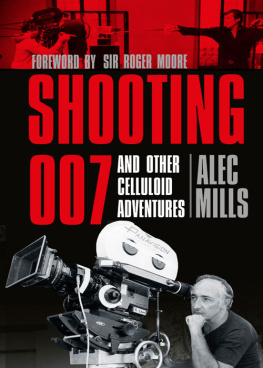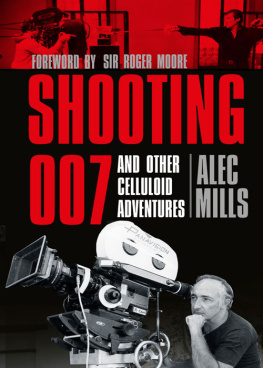Hugh Mills - Low Level Hell
Here you can read online Hugh Mills - Low Level Hell full text of the book (entire story) in english for free. Download pdf and epub, get meaning, cover and reviews about this ebook. year: 2000, publisher: Presidio Press, genre: Detective and thriller. Description of the work, (preface) as well as reviews are available. Best literature library LitArk.com created for fans of good reading and offers a wide selection of genres:
Romance novel
Science fiction
Adventure
Detective
Science
History
Home and family
Prose
Art
Politics
Computer
Non-fiction
Religion
Business
Children
Humor
Choose a favorite category and find really read worthwhile books. Enjoy immersion in the world of imagination, feel the emotions of the characters or learn something new for yourself, make an fascinating discovery.
- Book:Low Level Hell
- Author:
- Publisher:Presidio Press
- Genre:
- Year:2000
- Rating:4 / 5
- Favourites:Add to favourites
- Your mark:
- 80
- 1
- 2
- 3
- 4
- 5
Low Level Hell: summary, description and annotation
We offer to read an annotation, description, summary or preface (depends on what the author of the book "Low Level Hell" wrote himself). If you haven't found the necessary information about the book — write in the comments, we will try to find it.
Low Level Hell — read online for free the complete book (whole text) full work
Below is the text of the book, divided by pages. System saving the place of the last page read, allows you to conveniently read the book "Low Level Hell" online for free, without having to search again every time where you left off. Put a bookmark, and you can go to the page where you finished reading at any time.
Font size:
Interval:
Bookmark:
Vietnam in 1969 was a place where America's young people went because their country asked them to. While there, they did their jobs the best way they knew how, then looked forward to going home to their friends, families, schools, jobs. Hopefully, also, to the welcome and general approval of the American public.
As a new helicopter pilot, I felt fortunate to be assigned to D Troop (Air), 1st Squadron, 4th Cavalry, and the 1st Division's crack hunter-killer teams. I was proud to be a member of that unit then, and the years since have only deepened that feeling of regard.
In writing Low Level Hell, I have been fortunate to locate and talk to a number of the other young men who were in the troop with me in 1969. They were most supportive. First, for urging me to accomplish this task. But, more importantly, for their gentle prods to tell it the way it really happened, and to avoid making a war story out of it. I have done my best to do that.
It was my intent from the start to use real people, real names. To alsoas nearly as I couldrecount real situations happening under the circumstances and conditions that existed at the time. To do anything less seemed unfair to those I served with in the troop.
My sincere thanks go to all my comrades for reaching back in their memories, to help sharpen my recalling and recounting the events of 1969. Thanks, especially, to former Four Six, Bob Harris. He took the time, and the special effort, to give me his vivid reflections of that horrendous 28 July day that found him in a bomb crater, and me hovering over it with a box of medical supplies.
My appreciation, also, to Marianne Thornton of Morrison, Colorado. The hours she so willingly spent transcribing many of my audiotapes contributed greatly to keeping the creative process on track. Sandra Irelan and Jan Allgire spent a great deal of their own time typing and retyping drafts of the manuscript. Their gentle prodding kept me on course for nearly five years.
When basing a writing on fact, one obviously tries very hard to be as accurate as possible in all things. If inaccuracies have worked their way into this narrative, be sure that they are not there as the result of any intent on my part to misrepresent the facts. Of course, memory and records do not document the precise words spoken in casual conversations, radio transmissions, and other verbal exchanges. Much of the dialogue that I have written in this story, therefore, has been extrapolated from what the actual words spoken may have been. The reason, while always trying to keep the words in character with the person speaking them, was simply to make the dialogue more understandable and meaningful to the reader.
To further refresh my memory, and to maintain as high a degree of accuracy as possible, I have referred to numerous printed works, primarily operational and casualty reports of the units concerned.
In September 1971, I would return to Vietnam as a Cobra pilot for C Troop, 3d Squadron, 5th Cavalry working from Quang Tri airfield in I Corps, ranging from the A Shau Valley to the string of fire bases along the DMZ. When the unit deployed to the United States in February 1972, I elected to remain in-country and look for another cav troop. I was a single captain and intended to make the service my career. I was ultimately assigned to C Troop, 16th Cavalry operating out of Can Tho in the IV Corps tactical area. To my surprise this was again Darkhorse. The troop had remained in country in 1971 when the Big Red One went home to Fort Riley, Kansas, and had been redesignated as an independent troop of the 164th Combat Aviation Group.
My new position was aeroscout platoon leaderDarkhorse One Sixand asleep on my new bunk on the day I arrived was my new wingman, Captain Rod Willis.
Hugh L. Mills, Jr.
LTC, Aviation, U.S. Army
***
Shortly after his first tour in Vietnam, Hugh Mills jotted down the following thought: Many volumes have been and will be written on the Vietnam conflict, for Vietnam was the environment in which doctrine for the employment of the helicopter in airmobile and air cavalry operations was written. This doctrine was written not by the major commanders in the Pentagon, but by the young officers and enlisted men in their daily struggle to complete the mission of combat.
As one of the army helicopter scout pilots who helped significantly in the writing of that doctrine, Hugh Mills flew over 2,000 combat hours in Vietnam, most of them logged in his near idolized OH-6A Loaches. He believed that going to Vietnam was just another chapter in his army career. But while he was there, he was going to carry the point of the bayonet to the enemy's throat every way he could, every time he could. Not for the glory, but in the honest hope that U.S. servicemen and women could soon go home victorious, and that the people of Vietnam could, after being ravaged by war for so long, reclaim their country and live in peace.
Though it is not in Hugh Mills's disposition to speak of the honors that came to him flying scouts in Vietnam, one simply can't overlook the fact that Lieutenant Colonel Mills completed his service in Southeast Asia by being awarded: three Silver Stars, four Distinguished Flying Crosses, two Bronze Stars for Service, one Bronze Star for Valor, three Purple Hearts, seventy-two Air Medals (six with V for valor), three Army Commendation Medals (all with V device), one Vietnam Service Medal, one Republic of Vietnam Campaign Medal (six battle stars). And from the Republic of Vietnam government: Republic of Vietnam Cross of Gallantry (with Silver Star and Palm), Republic of Vietnam Technical Service Honor Medal First Class, and Republic of Vietnam Civic Action Medal First Class.
There's another thing about Hugh Mills that can't be overlooked, and that's the pride he takes in his own work, and in all those who worked with him in Vietnam. The men of D Troop (Air), and especially the aeroscouts of the Big Red One's Outcasts platoon, hold to this day a very special place in Hugh Mills's heart. In Vietnam, the life of a Loach crewman was only as good as the other guy in the ship. They depended upon each other to stay alivethere was probably no closer military comradery than that between the aeroscout crew chief and his pilot.
Mills, in my observation, has never lost the spirit of that comradery even though his tours in Vietnam ended some 22 years ago. He still tracks those who survived and made it back home, and takes pride in knowing the whereabouts of his fellow Darkhorsemen:
Tom Chambers A corporate pilot now living in Texas.
Bob Davis Retired from the army as a CW-4, now a corporate pilot living in Ohio.
Al Farrar Now lives and teaches school in his home state of Rhode Island.
Jon Gregory Retired from the army, currently a civilian airplane pilot for the U.S. Army.
Stu Harrell Now lives in Arizona and works as an investment planner.
Bob Harris Went to flight school after his Vietnam tours, became a pilot, and now serves in the army in Texas as a lieutenant colonel.
Bill Hayes Now works as a police officer in Washington, D.C.
John Herchert Lives and works as a sales representative in Missouri.
Bob Holmes Retired from the army, now an airline pilot.
Larry Kauffman Lives in Texas and is a regional sales manager.
Chuck Koranda Currently serving as a CW-4 in the Wisconsin Army National Guard.
Tim McDivitt Now lives in Florida where he is in business.
Major Charles Moore Lives in Tennessee where he is a county executive.
Jim Parker
Font size:
Interval:
Bookmark:
Similar books «Low Level Hell»
Look at similar books to Low Level Hell. We have selected literature similar in name and meaning in the hope of providing readers with more options to find new, interesting, not yet read works.
Discussion, reviews of the book Low Level Hell and just readers' own opinions. Leave your comments, write what you think about the work, its meaning or the main characters. Specify what exactly you liked and what you didn't like, and why you think so.

